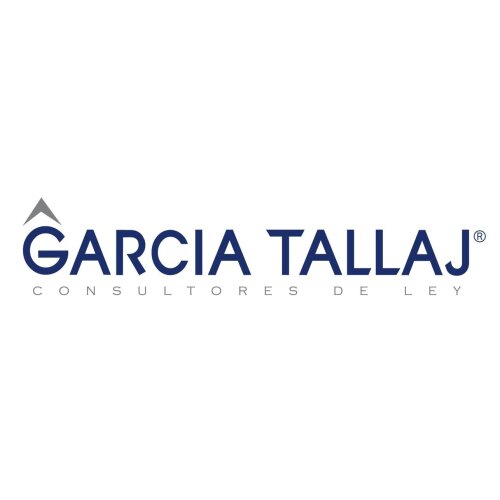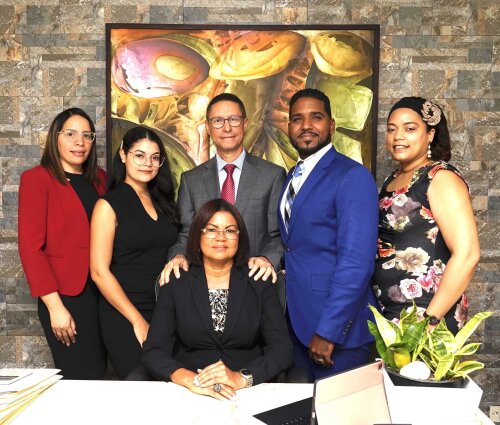Best Nonprofit & Charitable Organizations Lawyers in Sosua, Cabarete
Share your needs with us, get contacted by law firms.
Free. Takes 2 min.
List of the best lawyers in Sosua, Cabarete, Dominican Republic
About Nonprofit & Charitable Organizations Law in Sosua, Cabarete, Dominican Republic
Nonprofit and charitable organizations play a vital role in the community life of Sosua and Cabarete, both popular destinations within Puerto Plata province. These organizations focus on a wide range of activities, from supporting children and education to environmental initiatives and community development. The Dominican Republic has specific legal requirements and procedures governing the formation, registration, and operation of nonprofits, ensuring that these organizations can operate transparently and effectively for the public good. Laws are designed to foster trust in the sector while maintaining regulatory oversight.
Why You May Need a Lawyer
Working with a qualified lawyer is often essential for individuals or groups looking to establish, maintain, or expand a nonprofit or charitable organization in Sosua or Cabarete. A legal advisor can help navigate complex regulations, draft and review necessary documents, ensure compliance with government requirements, and protect your organization’s interests. Common situations where legal help is valuable include:
- Establishing or incorporating a new nonprofit organization.
- Drafting or reviewing articles of incorporation and bylaws.
- Registering with appropriate authorities, such as the Attorney General’s office or the DGII (tax authority).
- Obtaining tax-exempt status and understanding local tax obligations.
- Navigating foreign funding and international donor requirements.
- Adhering to labor laws when hiring staff.
- Ensuring compliance with local, provincial, and national legal updates.
- Managing real estate acquisitions or rentals for organizational purposes.
- Protecting against legal liabilities or claims from third parties.
- Collaborating or merging with other organizations.
Local Laws Overview
Nonprofit and charitable organizations in the Dominican Republic are primarily regulated by Law 122-05 and its amendments, which set out the framework for civil associations and nonprofit entities. To operate legally, organizations in Sosua and Cabarete must register with the appropriate government bodies, including the Attorney General’s office. Registration requires a public notarial deed of incorporation, bylaws, a list of founding members, and other documentation.
Once registered, organizations must comply with annual reporting requirements, including submission of activities and financial statements to ensure transparency. Local government regulations in Sosua and Cabarete may impose specific operational standards, particularly for organizations engaged in health, education, or social assistance. Nonprofits may apply for tax-exempt status under Law 122-05, but must follow the rules laid out by the Dirección General de Impuestos Internos (DGII).
Frequently Asked Questions
What is the process for creating a nonprofit or charitable organization in Sosua or Cabarete?
The process includes drafting articles of incorporation and bylaws, obtaining a notarial deed, and registering with the Attorney General’s office for legal recognition. Afterward, registration with the tax authority (DGII) is required for obtaining a tax identification number (RNC).
Who can be a founding member of a nonprofit organization in the Dominican Republic?
Any individual or legal entity, whether Dominican or foreign, can be a founding member, provided they meet the legal requirements and are included in the founding documentation.
Do nonprofit organizations need to pay taxes?
Registered nonprofits may apply for tax exemptions, but they must comply with specific requirements and periodic reporting to maintain this status.
Are there ongoing compliance requirements for nonprofits in Sosua and Cabarete?
Yes, organizations must annually submit reports of activities and financial statements to the relevant authorities to maintain legal status and benefits.
How can a nonprofit organization receive foreign donations?
Nonprofits can receive foreign donations but must properly report them to authorities. In some cases, additional compliance steps are required to adhere to regulations concerning money laundering and illicit funding.
Is it possible for foreigners to serve on the board of a Dominican nonprofit?
Yes, foreigners can serve on the board provided they are legally recognized in the organization's documents and comply with immigration requirements where necessary.
Can a nonprofit own property in Sosua or Cabarete?
Yes, a legally registered nonprofit can own property in its own name and use it for the organization’s purposes.
What steps should be taken if a nonprofit wants to hire employees?
Employment must comply with Dominican labor laws, including contracts, social security registration, and adherence to minimum wage and workplace standards.
How long does it take to legally establish a nonprofit organization?
The timeline varies based on the completeness of documentation and responsiveness of authorities, but typically ranges from several weeks to a few months.
What are the risks of operating a nonprofit without proper legal registration?
Operating without legal recognition can lead to penalties, inability to open bank accounts, loss of potential funding, and personal liability for organizers.
Additional Resources
For those seeking legal advice or assistance, the following resources and governmental bodies may be valuable:
- Office of the Attorney General (Procuraduría General de la República), which manages nonprofit registrations.
- Dirección General de Impuestos Internos (DGII), responsible for tax matters and exemptions.
- Local municipal government offices in Sosua and Cabarete, which may have additional requirements or resources for organizations.
- Colleges or associations of lawyers in Puerto Plata province, for referrals to experienced nonprofit legal advisors.
- Public libraries or community development NGOs, which may offer educational materials and support networks.
Next Steps
If you are considering starting or managing a nonprofit or charitable organization in Sosua or Cabarete, it is strongly recommended to consult with a lawyer experienced in Dominican nonprofit law. A legal professional can guide you through the incorporation process, ensure compliance, and address any issues unique to your organization’s mission or activities. Prepare all foundational documents and evidence of your intended charitable activities before seeking legal counsel. To proceed, compile your ideas and specific questions, and seek an initial legal consultation to map out the steps that align with your organizational goals and local regulatory requirements.
Lawzana helps you find the best lawyers and law firms in Sosua, Cabarete through a curated and pre-screened list of qualified legal professionals. Our platform offers rankings and detailed profiles of attorneys and law firms, allowing you to compare based on practice areas, including Nonprofit & Charitable Organizations, experience, and client feedback.
Each profile includes a description of the firm's areas of practice, client reviews, team members and partners, year of establishment, spoken languages, office locations, contact information, social media presence, and any published articles or resources. Most firms on our platform speak English and are experienced in both local and international legal matters.
Get a quote from top-rated law firms in Sosua, Cabarete, Dominican Republic — quickly, securely, and without unnecessary hassle.
Disclaimer:
The information provided on this page is for general informational purposes only and does not constitute legal advice. While we strive to ensure the accuracy and relevance of the content, legal information may change over time, and interpretations of the law can vary. You should always consult with a qualified legal professional for advice specific to your situation.
We disclaim all liability for actions taken or not taken based on the content of this page. If you believe any information is incorrect or outdated, please contact us, and we will review and update it where appropriate.









